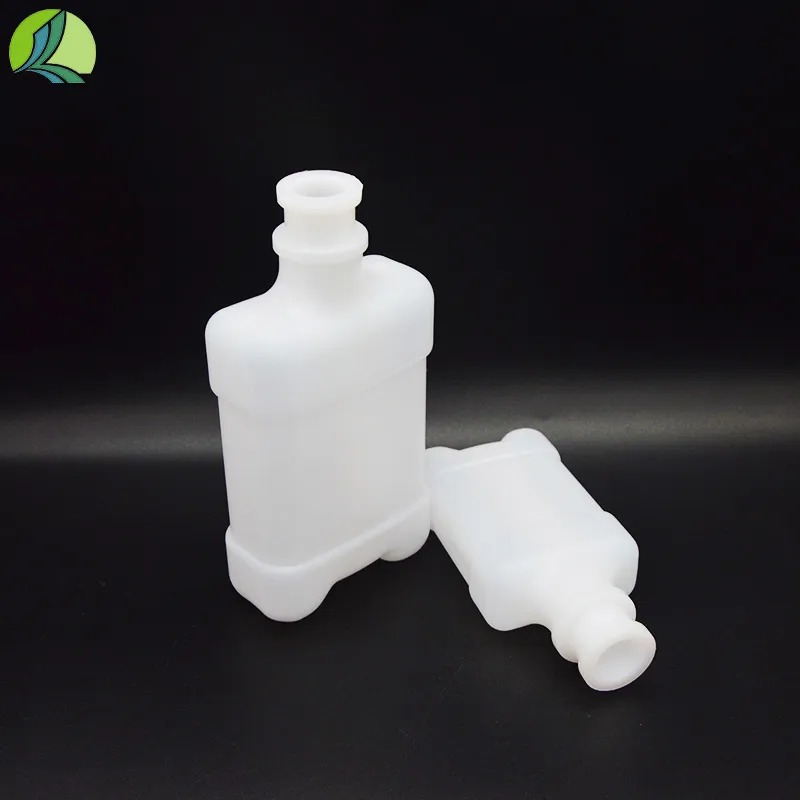reagent bottle function in laboratory
The Essential Role of Reagent Bottles in Laboratory Operations
In any laboratory setting, the organization, preservation, and precise dispensing of chemicals are paramount for ensuring efficient and safe experiments. Among the indispensable tools in laboratories are reagent bottles, which serve a critical function in storing and managing various chemicals for experimentation and analysis.
Reagent bottles are typically made from durable materials such as glass or high-density polyethylene (HDPE), which ensure the stability and integrity of the chemicals contained within. Glass bottles are often preferred for their chemical resistance and the ability to handle volatile substances without leaching harmful compounds. On the other hand, plastic reagent bottles offer advantages such as lighter weight and break resistance, making them suitable for environments where safety and mobility are essential.
The design of reagent bottles is tailored to facilitate safe storage and ease of use. Most bottles feature a narrow neck and a secure cap or stopper, minimizing the potential for spillage or contamination. Many bottles are also labeled clearly, often with a designated space for writing the name, concentration, and expiry date of the contents, which is crucial in preventing mix-ups during laboratory operations.
reagent bottle function in laboratory

Proper storage of reagents is essential to maintain their efficacy. Reagent bottles are often stored in designated cabinets or shelves, away from direct sunlight, heat sources, and incompatible chemicals. This careful handling prevents degradation or reaction that could compromise experimental results. Furthermore, laboratories must adhere to specific guidelines regarding the management of hazardous materials, ensuring that appropriate bottles are used for storing corrosive, flammable, or toxic substances.
In addition to storage, reagent bottles often facilitate the dispensing of chemicals during experiments. Many modern reagent bottles come equipped with dispensing spouts or droppers, which allow for accurate measurement of liquids, minimizing waste and enhancing precision in laboratory procedures. Some designs incorporate volumetric marks, enabling easy identification of specific quantities, an essential factor in quantitative analysis.
The significance of reagent bottles extends beyond mere storage; they are vital in maintaining laboratory safety. With the diverse array of chemicals handled in a typical lab, the probability of dangerous reactions increases without proper storage practices. By using labeled and approved reagent bottles, lab personnel can easily identify and handle chemicals, effectively reducing the risk of accidents.
In summary, reagent bottles play a fundamental role in laboratory operations by ensuring the safe storage, accurate dispensing, and effective management of chemicals. Their design and use not only facilitate organized workflows but also enhance safety protocols, making them an essential component of any research or testing facility. Thus, investing in quality reagent bottles and adhering to proper labeling and storage practices is crucial for the efficiency and safety of laboratory operations.
-
Aesthetic Makeup Spray Bottles | Fine Mist Empty RefillableNewsAug.19,2025
-
White Plastic Veterinary Vaccine Vials | Lab Liquid BottlesNewsAug.18,2025
-
Plastic Medicine Liquid Bottle: Secure Flip Top Drug VialsNewsAug.17,2025
-
Durable 250ml Blue Plastic Vaccine Vial for Lab & Vet UseNewsAug.16,2025
-
Sterile Virus Sample Tubes: Secure & Reliable Specimen CollectionNewsAug.15,2025
-
White 250ml Plastic Vaccine Vial for Lab & Vet MedicineNewsAug.14,2025
























